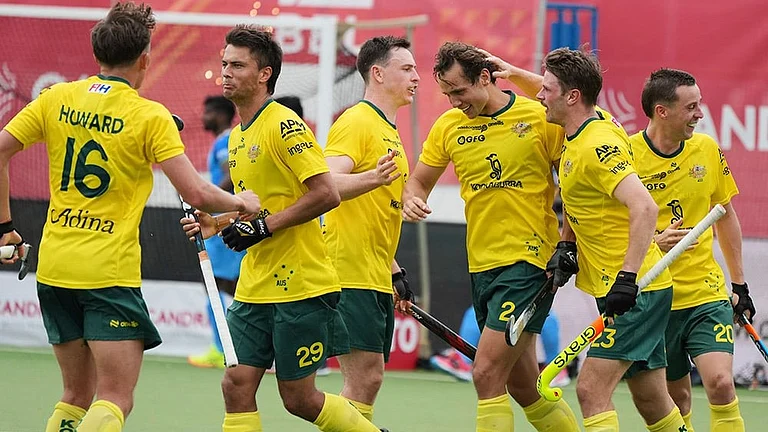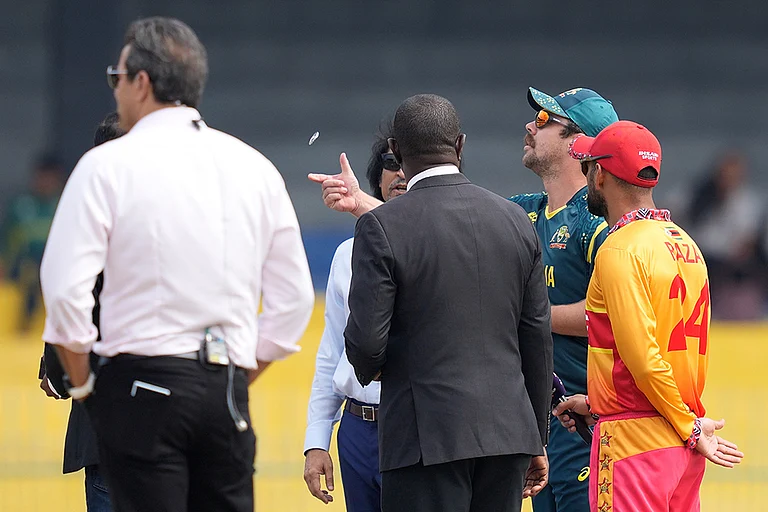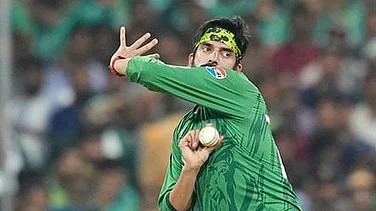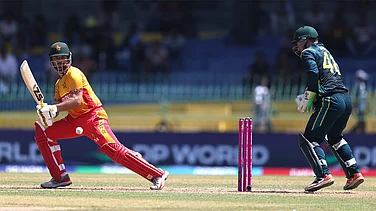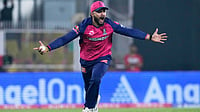A hundred and thirty thousand blue shirts sat in an eerie silence as a yellow brigade burst onto the field at the Narendra Modi Stadium in Ahmedabad. Their backs literally against a wall of blue, Australia remained unfazed and, after a disciplined and determined performance, took home their sixth ODI World Cup. (As It Happened | Scorecard | Pics | Full Coverage)
Travis Head, naturally albeit unwittingly, hogged the limelight with his 137 in the trophy bout, but the now six-times World Cup winners were efficient in all departments, whether with the bat, the ball, or on the wide green field. However, for Australia, getting to the final in the first place took a Herculian effort after they lost both their opening games and survived some close calls. Here, we look back at those defining moments that turned Australia's campaign into a triumph.
Successive Losses Jerk Australia Into Action
It wasn't the start they had hoped for. Having been beaten comfortably by hosts India in their opening match, the record World Cup winners were staring at a second successive defeat to open their 2023 ODI World Cup against South Africa. Yet, it was the precise push they needed to kick into action; following their two reverses, Australia did not lose again in the competition, winning nine games on the trot, including the semi-final and the final to claim their sixth 50-over World Cup title.
Close Game Against Rivals
Having beaten Sri Lanka, Pakistan, and the Netherlands in games three, four, and five, Australia came face-to-face with their neighbours and rivals New Zealand at a crucial juncture of their campaign. The Blackcaps, unbeaten hitherto, were looking to avenge their defeat to their adversaries in the 2015 ICC Cricket World Cup final, but found themselves on the backfoot when Australia set them a target of 388 to chase. Determined, New Zealand set about the chase, bleeding wickets at regular intervals, but moving toward the elusive total with each ball. With five runs short of the target, however, New Zealand lost danger-man Lockie Ferguson in a run out, handing the win to Australia.
Glenn Maxwell Goes Balistic
Australia faced Afghanistan in the late stages of the league round, with both teams chasing a spot in the knockouts. The advantage resided with the record-champions but the minnows were not to be underestimated, as they would prove by racing to 292 and then claiming seven Australian wickets for just 91 runs. Victory was in Afghanistan's grasp; they knew that they only needed to send Glenn Maxwell back to the pavilion to complete a memorable win. But, Maxwell never withered. The Aussie batter stood firm on the crease, even when his legs had given up on him, to hit an unbeaten 201 and dragging his team over the line.
Pacers Prevail In Semi-Final
A general complaint before the knockouts about the current iteration of the Australian team was the dearth of wickets the pacers had collectively claimed across the league stage. Rather, Adam Zampa, the spinner, had been Australia's go-to bowler when they needed a wicket - which he obliged by claiming 22 in the first round. However, against South Africa in the semis, the Australian pace attack put on a sensational show, reminding those watching of their talents. In between Mitchell Starc, Pat Cummins, and Josh Hazlewood, the Aussie pace unit claimed eight of the ten wickets they needed, thwarting South Africa to a low total.
Labuschagne, Head Bring Home The Cup
When Marnus Labuschagne entered the field on the day of the final, Australia were reeling from losing their third wicket at 47. They had limited India to a 240-run total, but having lost David Warner, Mitchell Marsh, and Steve Smith, were immediately on the backfoot at the start of the second innings. Slowly, but surely, Labuschagne and Travis Head rebuilt the Australian innings, the former playing pragmatically while the latter going for the big hits. Head finished his spell with 137 runs while Labuschagne, too, crossed the half-century mark as Australia beat India to lift the cup.







